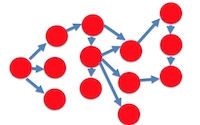
Big data and learning analytics: Singular or plural?
Recent critiques of both the uses of and discourse surrounding big data have raised important questions as to the extent to which big data and big data techniques should be embraced. However, while the context-dependence of data has been recognized, there remains a tendency among social theorists and other commentators to treat certain aspects of […]















